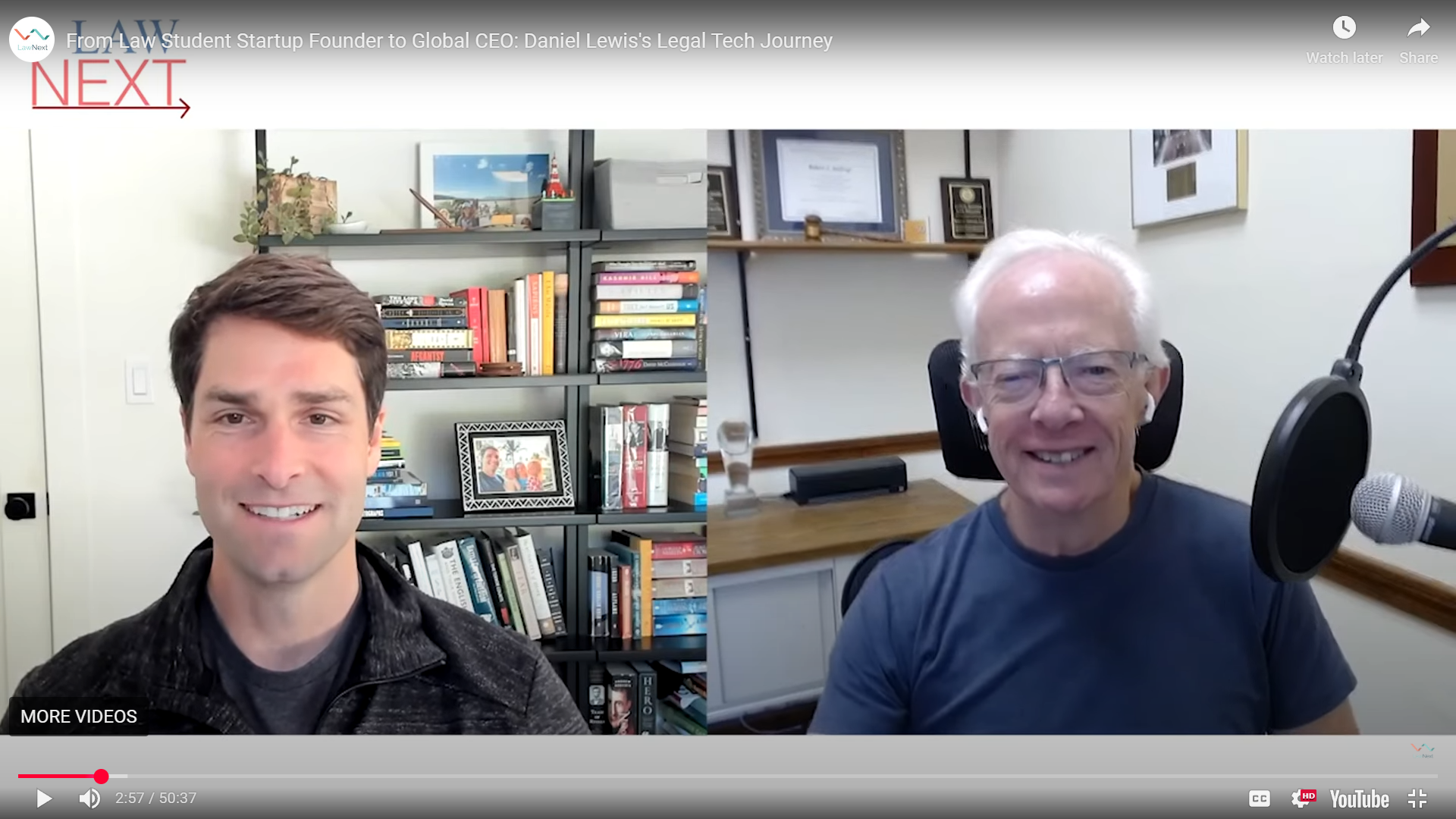Daniel Lewis has witnessed legal technology’s evolution from multiple vantage points that few others can claim. As a Stanford law student in 2012, he and classmate Nik Reed co-founded the legal research startup Ravel Law with the audacious goal of taking on LexisNexis and Westlaw using machine learning and data analytics – at a time when such challengers were few and far between. Not only was Ravel Law pioneering in its own right, but it also spearheaded and funded the Caselaw Access Project, an ambitious partnership with Harvard Law School’s Library Innovation Lab to digitize and provide free and open access to every official court decision ever published in the United States.
After Ravel’s acquisition by LexisNexis in 2017, Lewis spent the next five years leading product teams within the legal research giant, including as vice president and general manager of its Practical Guidance and analytics products. This dual perspective – startup founder turned corporate executive – helped shape his understanding of what works and what doesn’t when building technology for lawyers.
Today, as CEO and global chief executive of LegalOn Technologies, Lewis leads a 600-person company that is tackling contract review with a fundamentally different approach. Rather than relying solely on tech-enabled services or raw AI that can hallucinate legal advice, LegalOn combines large language models with attorney-developed playbooks to help in-house legal teams achieve up to 85% time savings on contract review. The company just raised $50 million, for a total raise of $200 million across multiple funding rounds – which Lewis says makes it the most well-funded AI company focused on in-house contract review – and announced a strategic partnership with OpenAI to develop AI agents for legal workflows.
In this wide-ranging conversation, Lewis shares hard-won insights about the realities of legal tech entrepreneurship, from the “deranged” confidence required to challenge industry giants as a law student to the leadership lessons learned managing teams through multiple business transformations. He discusses why the current moment represents the most significant opportunity for legal tech innovation in decades, how AI agents will reshape routine legal work, and what he’s learned about building technology that lawyers don’t just try once but actually integrate into their daily practices.
Listen here:
Watch here:
Related episodes:
Thank You To Our Sponsors
This episode of LawNext is generously made possible by our sponsors. We appreciate their support and hope you will check them out.
-
Paradigm, home to the practice management platforms PracticePanther, Bill4Time, MerusCase and LollyLaw; the e-payments platform Headnote; and the legal accounting software TrustBooks.
-
Briefpoint, eliminating routine discovery response and request drafting tasks so you can focus on drafting what matters (or just make it home for dinner).
-
Paxton, Rapidly conduct research, accelerate drafting, and analyze documents with Paxton. What do you need to get done today?
If you enjoy listening to LawNext, please leave us a review wherever you listen to podcasts.
 Robert Ambrogi Blog
Robert Ambrogi Blog